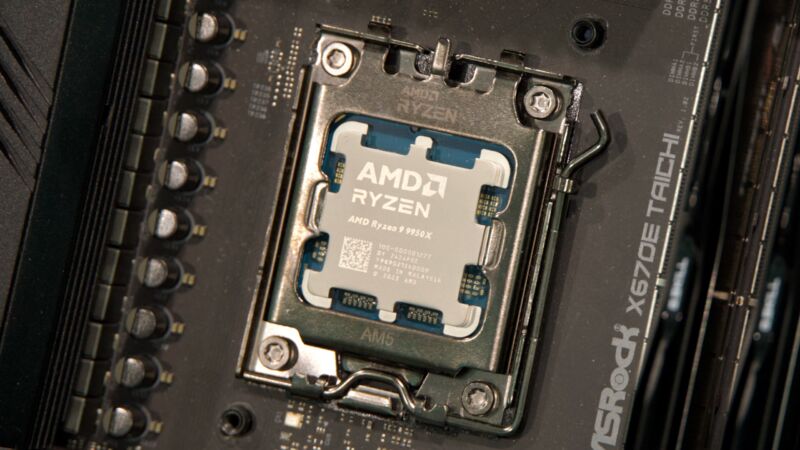
Enlarge / AMD's Ryzen 9 9950X. (credit: Andrew Cunningham)
Nearly two years after the release of the first Ryzen 7000 CPUs, AMD has returned with a full-fledged follow-up. The new Ryzen 9000 chips—the 6-core 9600X, 8-core 9700X, 12-core 9900X, and 16-core 9950X—bring AMD's new Zen 5 architecture to the desktop a couple of weeks after it launched in the Ryzen AI chips for laptops.
We came away from the cumbersomely named Ryzen AI 9 HX 370 impressed by both its performance and its power efficiency, and AMD is also leaning into power efficiency as a key selling point of the Ryzen 9000 series. Three of the chips have seen their power limits dropped significantly compared to last-gen chips while still bragging of low-double-digit performance increases. That's rare at a time when Intel has been pushing its chips to the edge to squeeze every last bit of performance out of high-end Core i9 and Core i7 chips.
The focus on power efficiency will give many users—particularly those who don't touch the default settings—less-power-hungry chips that run a bit cooler. And for people who want to tinker and trade in some of that efficiency for a performance boost, many of these chips (particularly the 9700X and 9900X) have a lot of additional performance headroom. It's also nice that all existing AM5 motherboards on the market should be compatible with the 9000 series once a BIOS update is installed, and the AM5 platform's mandatory BIOS Flashback support means you don't need to use weird, kludgy hacks like the "boot kit" CPU loaner program for updating the BIOS when you buy a board with an older BIOS installed.
Read 32 remaining paragraphs | Comments
Ars Technica - All contentContinue reading/original-link]




